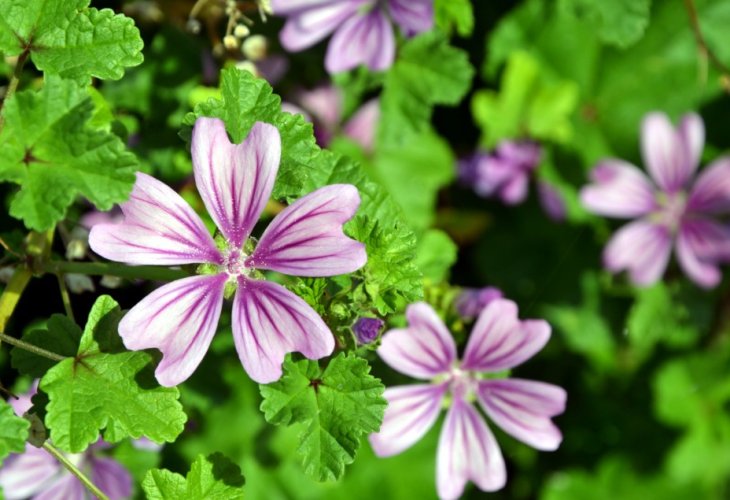Discover the Hidden Gem: Hubeza and Its Health Benefits
Grow your wellness with Hubeza, the versatile plant packed with health benefits, ready to transform your meals from the backyard to the table.
 (Photo: Shutterstock)
(Photo: Shutterstock)What's the solution when bread is scarce?
Legend has it during the siege of Jerusalem in Israel's War of Independence, the city's Jews faced a dire bread shortage. In the absence of wheat, they found treasure in a commonly known plant—Hubeza. They used it to make a variety of dishes, discovering the origin of its Arabic name, which means "bread."
Hubeza, also called "Chalamit" in Hebrew—drawing from the word "Challah"—is a remarkably common winter plant. Despite being lesser-known, it offers countless culinary possibilities. Winter is when Hubeza shines the most. Its soft, silky leaves can be included in nearly any dish, offering a taste reminiscent of spinach, with far broader use cases.
Hubeza is quite the urban plant, growing in gardens, fields, and even next to buildings in big cities. Every part of the plant is edible: the stem, leaves, and even its fruit. But before you set out to harvest some Hubeza post-article, note: it's crucial to recognize the plant's appearance as lookalikes can be toxic. Hubeza leaves are broad, dark green, rounded, and divided into toothed lobes. Its small flowers are light purple, eventually maturing into fruit resembling a pie divided into sections. When collecting Hubeza, it's best to opt for the smaller, tender leaves over the larger, fibrous ones.
Hubeza leaves can substitute for lettuce, spinach, baby greens, or chard in salads. You can also cook the plant's parts to create diverse meals. In England and France, they even make marshmallows from Hubeza—the plant's stem releases a mucilaginous, mildly sweet substance that, when cooked with sugar and whipped, takes on a texture similar to the marshmallow we know.
Health Benefits
So why include Hubeza in your diet when you have familiar foods? The plant boasts numerous health advantages. Like all leafy greens, Hubeza is rich in chlorophyll, noted for its anti-cancer properties and general health boost. It's high in fiber yet low in calories, laden with vitamins A, B, and C, iron, minerals, proteins, and abundant antioxidants.
Various studies highlight Hubeza's health benefits across different life areas. Here are a few examples:
Winter Ailments – Hubeza leaves contain a mucilaginous polysaccharide known for its anti-inflammatory and antiseptic properties. It helps with dry cough, respiratory issues, and more. Other plant components aid in mucus release, providing relief for bronchitis, asthma, and respiratory diseases.
Immune System Strength – Hubeza contains beta-sitosterol, aiding white blood cell function and strengthening the immune system. It particularly helps with cancer pain relief and prevents prostate cancer.
Digestive Health – The mucilaginous polysaccharide also lubricates and relaxes intestinal walls, aiding nutrient absorption. Hubeza supports irritable bowel issues, constipation, and positively affects kidneys and urinary tracts similar to cranberries, which are renowned for these benefits. It also prevents kidney stone formation.
Insomnia – Numerous medications designed to calm patients before medical procedures contain Hubeza extracts. The plant soothes and calms, making it useful for sleep disturbances. You can use Hubeza in various forms, such as tea infusions or oil extracts.
Wounds, Burns, and Infections – Hubeza provides relief for burns, stings, eczema, and various wounds. It soothes the skin and has a slight numbing effect. Hubeza extracts applied to the skin offer hydration, while compresses soaked in Hubeza infusion can reduce swelling, redness, and itching.
Oral Health – Hubeza helps prevent and treat gum inflammation. Those prone to such issues might find Hubeza infusion effective as a mouthwash.
Cosmetics – Many creams and cosmetic masks include Hubeza extracts, which help prevent skin aging. The plant’s free radicals and abundant vitamin A rejuvenate and heal the skin. Hubeza is also beneficial for hair care, providing strength, flexibility, and health.
Convinced and ready to try it? Here's one recipe from the many ways to prepare Hubeza.
Hubeza Patties Recipe
120 grams Hubeza leaves
3 tablespoons ground flaxseeds
2 tablespoons bread crumbs
1 tablespoon lemon juice
1/3 cup water
Salt
Oil for frying (grape seed oil or avocado oil recommended)
Fill a pot with water and bring to a boil. Add Hubeza leaves and cook for a few minutes. Drain and rinse with cold water. Squeeze out as much water as possible and chop the leaves.
Mix the flaxseeds in 1/3 cup of water and let sit for about 15 minutes.
Combine chopped Hubeza with lemon juice and bread crumbs, adding a pinch of salt. Include the prepared flaxseed mixture and mix well.
Shape into small patties.
Heat oil in a pan so that it thoroughly covers its bottom. Fry each patty for several minutes on each side.
Place patties on a plate lined with a paper towel to absorb excess oil.

